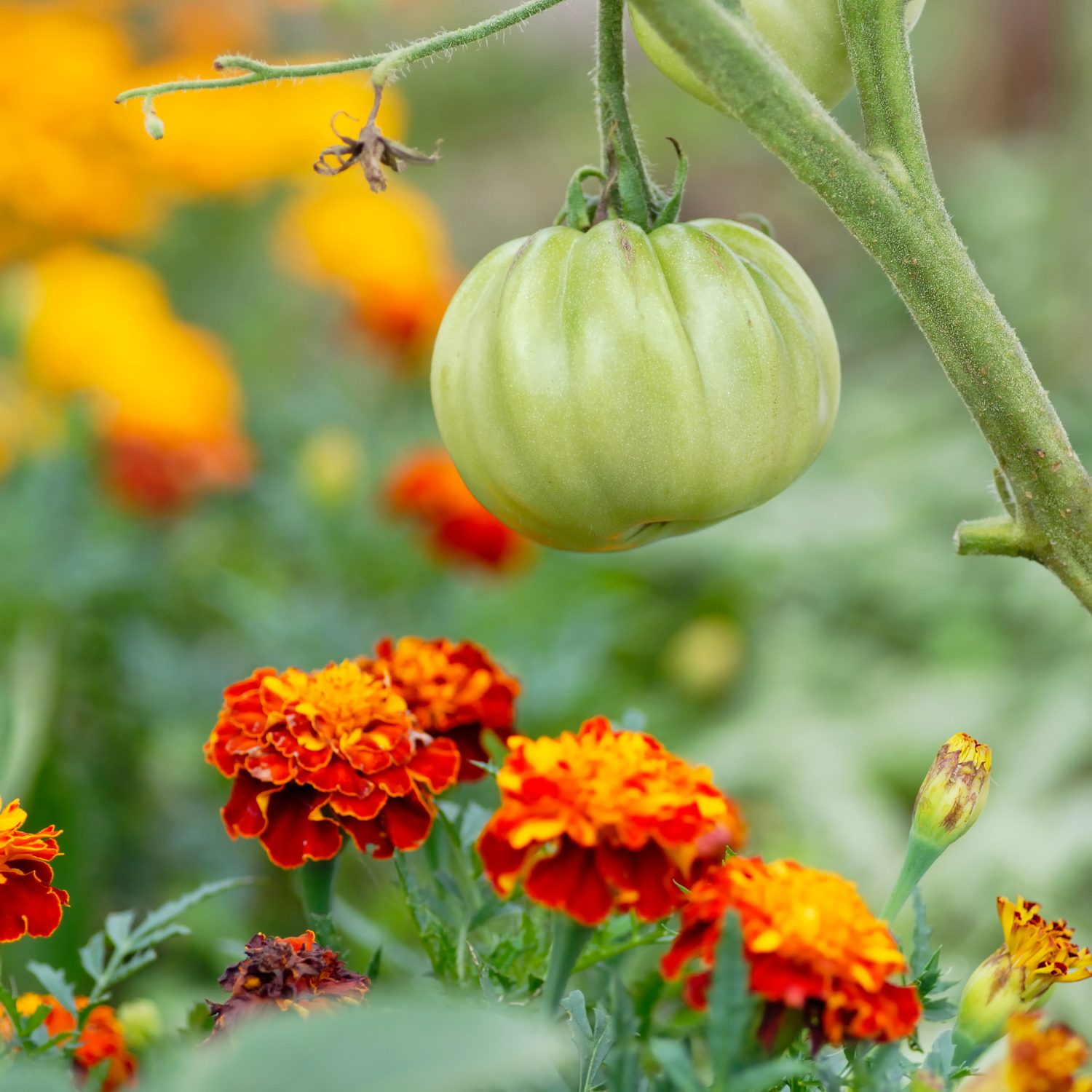Imagine creating a vegetable garden where your plants thrive together in a harmonious ecosystem, benefiting each other in surprising ways. Companion planting offers a solution to transform your garden into a flourishing paradise, from healthier soil to natural pest control and increased yield. In this article, we will explore the amazing benefits of companion planting, including how it improves soil health, promotes plant growth, and creates a balanced ecosystem. Discover the best plant combinations to maximize your garden’s potential and watch as you.
This post may contain affiliate links, as an Amazon Associate I earn from qualifying purchases, this is at no extra cost to you
Improving Soil Health
Companion planting not only benefits the plants themselves but also greatly enhances the health of the soil they grow in. By combining specific plants that complement each other’s nutrient needs and root structures, you create a diverse and well-balanced soil environment that encourages beneficial microorganisms to thrive. Improved soil health leads to better water retention, increased nutrient availability, and overall stronger plant growth. As you delve into the world of companion planting, you will witness firsthand the positive impact it has on the vitality of your garden. So, let’s explore how this technique can also help naturally control pests in your vegetable garden.
For a great read on soil health, read Soil Science for Beginners for lots of great info.
Natural Pest Control
One of the lesser-known benefits of companion planting is its ability to naturally control pests in your vegetable garden. By strategically pairing certain plants together, you can deter pests that would normally wreak havoc on your crops. For example, planting marigolds alongside tomatoes can repel nematodes, while growing basil near your tomatoes can ward off spider mites. This natural pest control method not only reduces the need for harmful chemicals but also promotes a more balanced and sustainable ecosystem in your garden. By understanding the relationships between plants and pests, you can maintain a healthy garden without the use of synthetic pesticides. Now, let’s see how companion planting can also promote plant growth in your vegetable garden.
Promoting Plant Growth
In addition to natural pest control, companion planting can also play a significant role in promoting plant growth in your vegetable garden. Certain plant combinations can help improve soil fertility by fixing nitrogen, suppressing weeds, and conserving moisture. For example, planting nitrogen-fixing legumes like peas or beans alongside heavy-feeders like corn or squash can provide a natural source of fertilizer for the latter, resulting in healthier and more productive plants. By understanding the symbiotic relationships between different plant species, you can create a thriving garden ecosystem that supports the growth and development of your vegetables. Now, let’s explore some of the best plant combinations to maximize the benefits of companion planting in your garden.
Best Plant Combinations
When it comes to companion planting in your vegetable garden, some plant combinations work better together than others. For example, planting aromatic herbs like basil or mint alongside tomatoes can help deter pests and improve the flavor of the tomatoes. Another winning combination is planting marigolds near your vegetables to repel nematodes and other harmful insects. Additionally, interplanting flowers like nasturtiums with your vegetables can attract beneficial insects like ladybugs and bees, which can help with pollination and pest control. By strategically planning your plant combinations, you can create a diverse and harmonious garden ecosystem that benefits all of your plants.

Companion Planting Combinations
- Tomatoes and basil. The basil will decrease tomato hornworms.
- Plant Dill around your garden to attract ladybugs, which will eat aphids and spider mites.
- Plant garlic to detour many different insects from your garden.
- Plant mint to detour aphids and ants from chomping on your crops. Be sure to plant them in their own pots since they like to take over the garden.
- Plant flowers such as marigolds or cosmos in and around the garden, they will attract insects that will help with pollinating and attract pest-eating bugs!
- Plant pole beans with squashes, the beans fix nitrogen into the soil which the squash love!
For LOTS more combinations and info read this book!
Creating a Harmonious Ecosystem
By strategically planning your plant combinations, you can create a diverse and harmonious garden ecosystem that benefits all of your plants. This means not only considering the beneficial relationships between certain plants but also thinking about the overall health and balance of your garden. Creating a harmonious ecosystem in your garden can lead to a more bountiful harvest and healthier plants overall.
Incorporating companion planting into your vegetable garden not only improves soil health, aids in natural pest control, and promotes plant growth, but also creates a harmonious ecosystem that benefits all your plants. Start experimenting with different plant combinations to witness the amazing results for yourself. As the saying goes, “In every walk with nature one receives far more than he seeks.” So, immerse yourself in the practice of companion planting and watch your garden flourish like never before. Start today and reap the rewards of a thriving ecosystem in your own backyard.
Read this book for TONS of info on companion gardening to take your garden to the next level.
For more gardening tips check out these articles!
Unleash Your Green Thumb: How to Grow Jalapeno Peppers
Share this:
- Click to share on Facebook (Opens in new window) Facebook
- Click to email a link to a friend (Opens in new window) Email
- Click to share on Reddit (Opens in new window) Reddit
- Click to share on Tumblr (Opens in new window) Tumblr
- Click to share on Pinterest (Opens in new window) Pinterest
- Click to share on WhatsApp (Opens in new window) WhatsApp

One response to “Benefits of Companion Planting in Your Vegetable Garden”
[…] Benefits of Companion Planting in Your Vegetable Garden […]